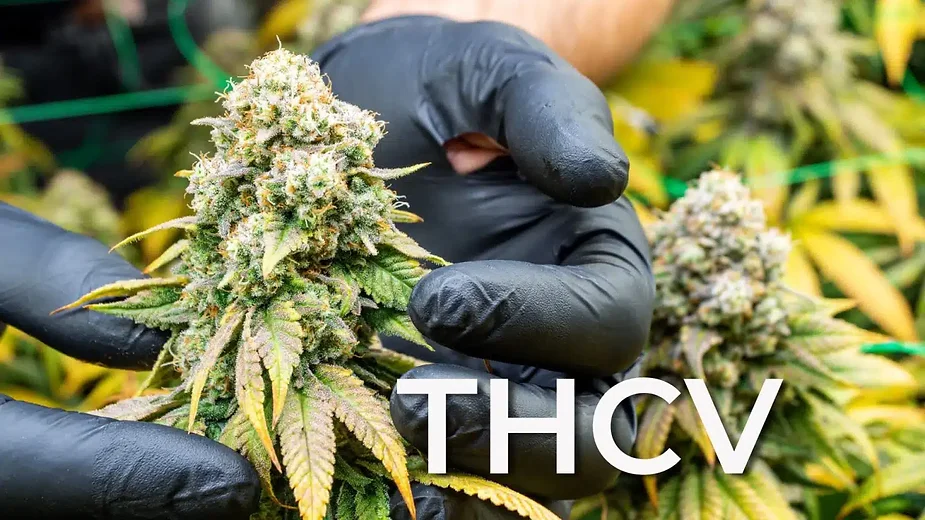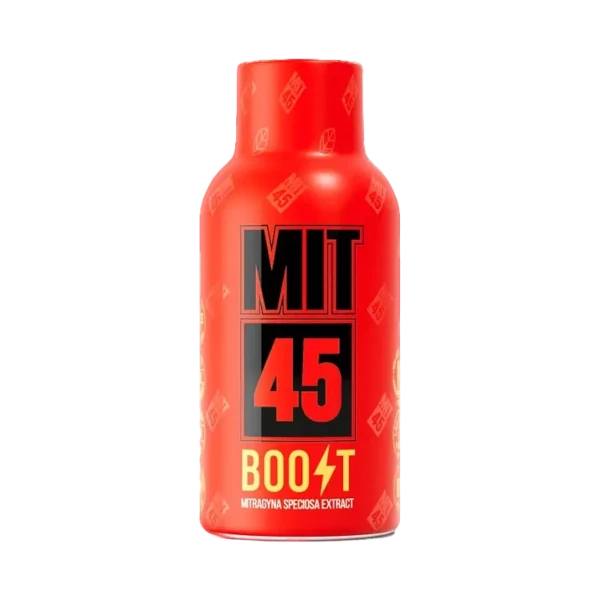When people hear anyone talk about cannabis, they almost reflexively assume the conversation will revolve entirely around the well-known THC and CBD, leaving the intrigue surrounding lesser-known cannabinoids in the shadows. Among these hidden gems is Tetrahydrocannabivarin (THCV), a compound that is swiftly capturing the attention of consumers and researchers alike. THCV stands out not just for its rarity, but for the unique array of effects and benefits it offers, distinguishing itself from its more famous counterparts.
This article aims to shed light on THCV, guiding you through its discovery, its distinct psychoactive properties, and the multitude of benefits it potentially holds. As we delve into the world of THCV, prepare to uncover the nuances that make this cannabinoid a subject of growing curiosity and interest in the cannabis community.
A Short History of THCV
The story of Tetrahydrocannabivarin (THCV) begins in the early 1970s, marking a significant chapter in cannabis research. Its discovery was almost accidental. Initially overshadowed by the discovery of THC, THCV was identified as a minor cannabinoid, present in smaller quantities in certain cannabis strains.
Unlike THC, which was quickly recognized for its psychoactive properties, THCV’s subtler effects didn’t spark the same level of attention. However, as the cannabis industry evolved, so did the interest in THCV. Researchers began to notice that THCV exhibited unique characteristics, differing from THC in both its molecular structure and its impact on the human body.
As research progressed through the decades, THCV started to emerge from the shadows. Studies conducted in the late 1990s and early 2000s began to reveal its potential health benefits, distinguishing THCV as a cannabinoid with distinct properties. Unlike THC, THCV appeared to offer a more clear-headed experience, with less psychoactive intensity and a host of potential therapeutic benefits.
Today, THCV is at the forefront of cannabis research, with scientists exploring its effects on appetite control, glucose metabolism, and anxiety, among other areas. This progression of research has transformed THCV from a little-known compound into a cannabinoid of significant interest, offering promising avenues for both medical and recreational cannabis consumers. As we continue to uncover the secrets of THCV, it stands as a testament to the ever-expanding potential of the cannabis plant.
Does THCV Induce a High?
The psychoactive properties of THCV, often a point of curiosity, differ notably from those of THC. While THC is renowned for its potent psychoactive effects, THCV presents a more nuanced profile. At lower doses, THCV acts as a CB1 antagonist, which means it can actually counteract some of the psychoactive effects of THC. This can result in a clearer, more focused experience for users, without the intense euphoria or sedation often associated with high THC strains.
However, at higher concentrations, THCV begins to exhibit psychoactive properties, though these are still distinct from those of THC. The experience is often described as more cerebral, energetic, and less likely to induce the typical ‘high’ associated with THC. This unique characteristic positions THCV as an appealing option for users seeking mental clarity and alertness.
THCV and Active Medical Patents
The medical potential of THCV has sparked a surge in research and development, leading to several active patents. These patents reflect the growing interest in harnessing THCV’s unique properties for therapeutic purposes. One notable patent involves the use of THCV in the treatment of metabolic disorders, including diabetes. This patent underscores the cannabinoid’s potential role in regulating blood sugar levels, a breakthrough in managing a condition that affects millions worldwide.
Another significant area of patenting activity revolves around THCV’s neuroprotective properties. Researchers are exploring its use in treating neurodegenerative diseases such as Parkinson’s and Alzheimer’s. These patents represent a hopeful stride towards new, more effective treatments for these challenging conditions.
Medical Potential of THCV
Looking ahead, the future implications of THCV in medical applications appear promising. Its appetite-suppressing effects are being studied as a potential tool in combating obesity and related health issues. Additionally, THCV’s anxiolytic properties without sedative effects make it a candidate for treating anxiety disorders, offering relief without compromising alertness and cognitive function.
The bone growth stimulation property of THCV also holds potential in treating osteoporosis and other bone-related conditions. This aspect could revolutionize the approach to bone health, particularly in aging populations.
As research continues to unfold, THCV is poised to play a significant role in the future of medical cannabis. Its diverse range of therapeutic applications positions it not just as a subject of current medical interest, but as a beacon of hope for future innovations in healthcare. The ongoing exploration of THCV’s medical potential is a testament to the ever-expanding possibilities within the realm of cannabis research.
Market Overview of THCV Availability
The market for THCV products, though not as extensive as that for THC or CBD, is rapidly expanding. As awareness and interest in THCV grow, more products are emerging to meet consumer demand. Currently, THCV is most commonly found in specialized strains of cannabis, vape cartridges, and specific edibles formulated for its unique effects. These products often highlight THCV’s energizing and appetite-suppressing qualities, catering to consumers seeking a distinct cannabis experience.
Guide to Selecting High-Quality THCV Products
When venturing into the world of THCV, it’s crucial to discern quality to ensure a safe and effective experience. Here are some guidelines to help you choose the best THCV products:
- Lab Testing and Certification: Look for products that have been third-party lab tested. Certificates of Analysis (COA) should be available, indicating the product’s cannabinoid profile and ensuring it is free from harmful contaminants.
- Source of THCV: Opt for products derived from reputable growers and manufacturers known for their quality and safety standards. The origin of the THCV can influence its purity and efficacy.
- Product Formulation: Understand the product’s formulation. Full-spectrum products may offer additional benefits due to the entourage effect, while isolates provide a more focused THCV experience.
- Consumer Reviews and Reputation: Research consumer feedback and reviews. A product’s reputation in the market can be a reliable indicator of its quality and effectiveness.
- Compliance and Legal Status: Ensure the products comply with local regulations regarding cannabis products. This is crucial for both your safety and legal protection.
By following these guidelines, consumers can navigate the THCV market with confidence, finding products that not only meet their specific needs but also adhere to the highest standards of quality and safety. As the market continues to evolve, staying informed and selective is key to a satisfying THCV experience.




